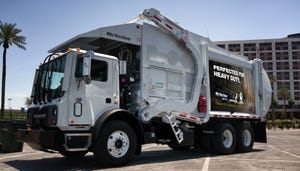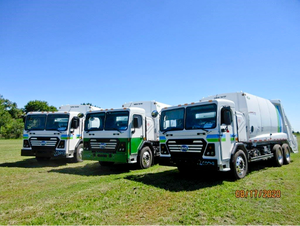Would Microwave-Based Alkaline Battery Recycling Work at the Local Level?
The prevalence of electronics such as cell phones, laptops and even vehicles has caused global demand for batteries to skyrocket. A study published in the Resources, Environment and Sustainability journal examined a recycling system that uses microwave heating for recycling old alkaline batteries at a local level.
The prevalence of electronics such as cell phones, laptops and even vehicles has caused global demand for batteries to skyrocket.
In the United States, American dispose of more than 180,000 tons of batteries each year, and 86,000 tons of them are alkaline, according to the EPA. With no structured supply chain for batteries, the waste and recycling industry continues to carry the burden in the form of fires, explosion and other dangerous consequences.
A study published in the Resources, Environment and Sustainability journal examined a recycling system that uses microwave heating for recycling alkaline batteries at a local level.
"With the global increase in production and consumption, more and more waste is being generated today," the study's authors said. "This calls for effective recycling techniques to achieve a circular economy. Distributed recycling systems offer cost- and energy-efficient alternatives to the conventional centralized recycling process."
The availability of a small-scale, microwave-based process at the local level could reduce the energy requirements for transportation, reduce risk and potentially increase recycling rates, according to the research. An empirical study was first completed in order to test the feasibility of a small-scale alkaline battery recycling system.
"In lab-based experiments, pyrometallurgical microwave-based heating successfully separated a mixed sample of Mn3O4 and ZnO contained in obsolete alkaline batteries and recovered MnO and Zn separately, achieving a recovery rate of 97 percent under an ambient atmosphere," according to the study. "It was also found that the recovery rate of zinc obtained by microwave-based heating is 1.5-fold that using conventional electric furnace-based heating, with less than half of the heating time required.
The recovery rate was 1.5 times greater than conventional electric furnace-based heating and took half the time.
The research team then implemented the technique in 1,710 municipalities in Japan, using energy consumption and greenhouse gas emissions as metrics. Researchers noted a "balance between centralized and distributed recycling systems can reduce annual energy consumption and greenhouse gas emissions across Japan by 26,500 GJ and 1.54 Gg-CO2eq, respectively."
Study author Professor Shoki Kosai concluded that “Through the adoption of this system, areas where natural resources are not available will gain the opportunity to become suppliers of secondary resources. This system could also remedy the problem of metal recycling in developing countries."
About the Author(s)
You May Also Like




